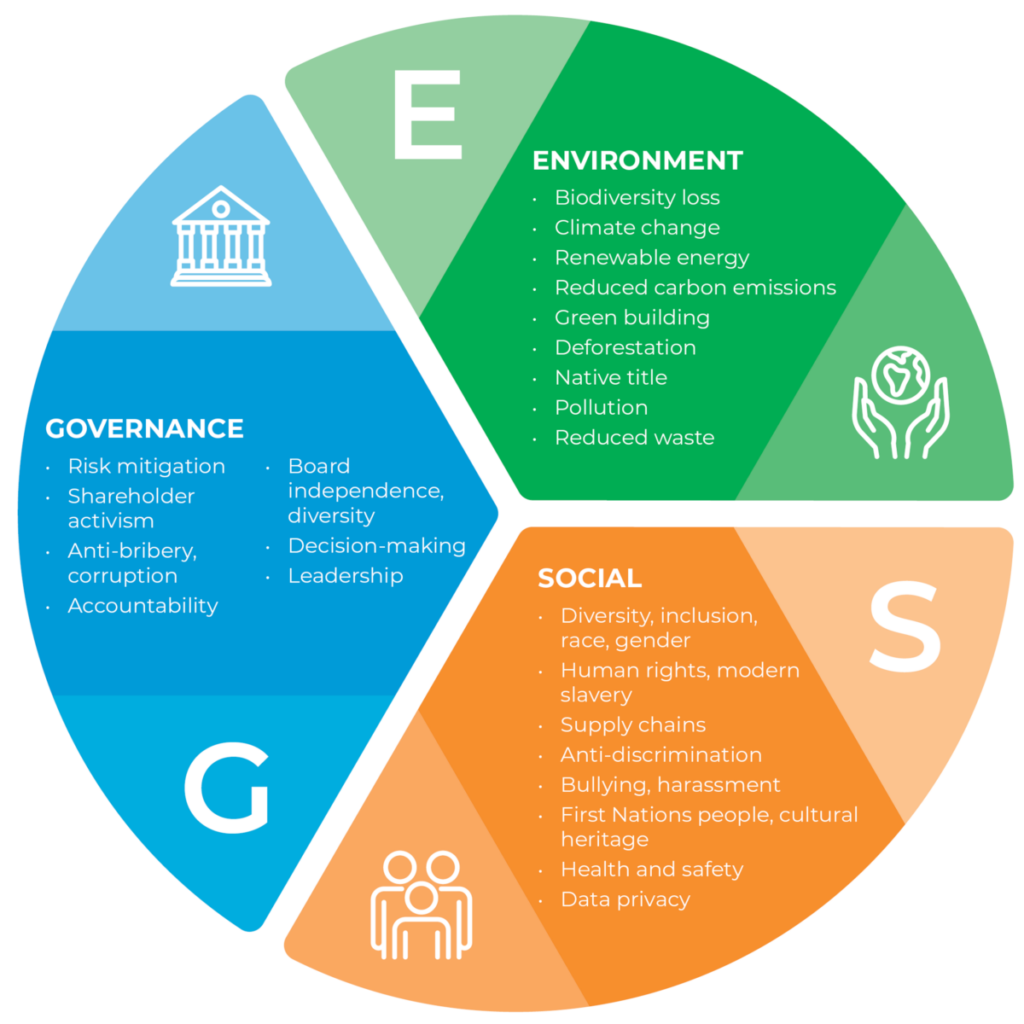In recent years, there has been a growing awareness of the importance of environmental, social, and governance (ESG) factors for businesses. ESG refers to the non-financial criteria that companies use to measure their impact on society and the environment. These factors have become increasingly important to investors, consumers, and regulators, as they recognize that the long-term success of a business is not just about financial performance. But also about its impact on people and the planet.
What does ESG Stand For?
The “E” in ESG stands for the environment. This component focuses on how a company impacts the natural world, including its use of natural resources, energy efficiency, waste management, and emissions. Companies that prioritise the environment often implement strategies to reduce their carbon footprint, conserve resources, and promote sustainable practices. By doing so, they can improve their reputation, reduce costs, and mitigate potential risks associated with environmental regulation.

The “S” in ESG stands for social. This component focuses on how a company impacts society, including its employees, customers, and the communities where it operates. Companies that prioritize social factors often implement policies and practices to promote diversity and inclusion. Also to ensure fair labor practices, and prioritize the health and safety of their employees. By doing so, they can improve employee satisfaction and retention, attract customers who value social responsibility, and strengthen their relationships with the communities where they operate.
The “G” in ESG stands for governance. This component focuses on how a company is managed and governed, including its internal controls, ethics, and transparency. Companies that prioritize governance often have strong systems in place to prevent fraud, promote ethical behavior, and ensure accountability. By doing so, they can build trust with investors, avoid legal and reputational risks, and improve their long-term financial performance.

The Purpose of ESG
The purpose of ESG is to encourage companies to operate in a way that is sustainable, responsible, and ethical. By prioritizing these non-financial factors, companies can create long-term value for their stakeholders, including investors, customers, employees, and communities. This can help them build a strong reputation, attract and retain talent, and mitigate potential risks.
At AIS Environment, we understand the importance of ESG for businesses. That’s why we offer a service called Business Reality Check, which helps companies assess their environmental, social, and governance performance. Our Business Reality Check service provides a comprehensive assessment of a company’s existing practices. Identifying areas for improvement and helping companies implement strategies to improve their performance. AIS Environment can help businesses who not only wish to survive, but those that wish to grow and thrive.
The Business Reality Check covers a range of topics. Such as, energy efficiency, waste management, employee diversity and inclusion, labor practices, and ethical governance. We also provide a customized report that includes specific recommendations for improvement, along with an action plan to help companies implement these recommendations.
Our Business Reality Check service goes hand-in-hand with ESG principles. This service is designed to help companies improve their operations in a way that is practical, measurable, and cost-effective. By improving their practices, companies can enhance their reputation, attract and retain customers and employees, and improve their long-term financial performance.
ESG factors have become increasingly important for businesses in recent years. Companies that prioritize environmental, social, and governance factors can create long-term value for their stakeholders. Including investors, customers, employees, and communities. At AIS Environment, we offer a comprehensive ESG assessment through our Business Reality Check service, which helps companies assess their performance and implement strategies to improve it. We believe that by working together, we can help create a more sustainable, responsible, and ethical future for businesses and the world.
